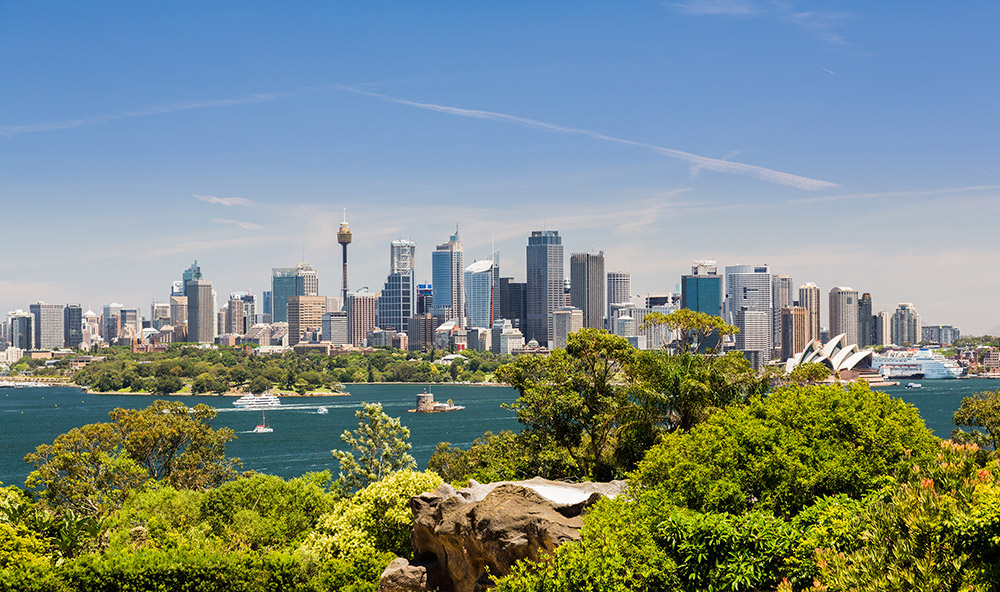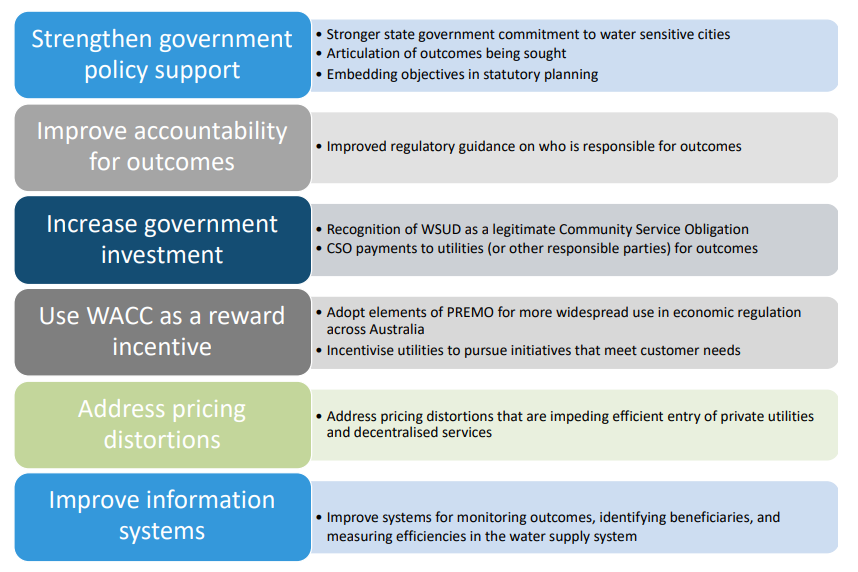Why isn’t WSUD being funded at scale in Australia?
There is compelling evidence of the benefits of water sensitive cities and yet water sensitive urban design (WSUD) is not being funded, at scale, in Australia. Our IRP2 team recently explored the possible reasons for this anomaly, and has now released its findings and outlined potential reform options in a recently published discussion paper: A review of existing funding models, economic regulatory frameworks, policies and mechanisms.
The team is collecting feedback about the potential reform options, and will soon run an interactive workshop to engage with policy makers and regulatory managers on six reform options and participate in designing alternative approaches that are likely to help increase investment in WSUD.
The team’s findings point to the need for some significant changes in government policy settings.
In the paper, the IRP2 team concludes that although funding and financing issues are widely cited as an impediment to delivering WSUD, funding and financing issues are not the main impediment, at scale. Rather, the main issue is the ‘authorising environment’ for investment decision making.
To diagnose the most constraining factors, the team sets out how WSUD projects are currently assessed and treated under existing policy and regulatory frameworks, and examines instances where projects are being held back due to the institutional environment.

While incremental changes in government policies at the margin may assist, the team believes this will not be sufficient to increase the funding needed to motivate change at the scale needed to realise the vision of water sensitive cities.
The purpose of the report was not to make recommendations, but to identify reform options for debate and discussion. The first three options can be collectively viewed as policy and institutional reforms aimed at elevating WSUD as a priority for government, and putting in place the necessary enabling architecture to equip regulators, utilities, local government and other parties with the authority to deliver WSUD. They are:
- strengthening government policy support for water sensitive cities, including articulating measurable outcomes being sought and embedding these objectives, targets and standards in statutory planning processes
- updating regulatory frameworks to ensure that the amenity, public health and environmental benefits of WSUD are recognised as a legitimate community service obligation. These obligations may be achieved by either water utilities or other responsible parties who can then collect the revenue required to achieve these public good objectives
- improving system level accountability for outcomes by assigning responsibilities to a lead authority that is best placed to coordinate and/or deliver WSUD projects, collect and distribute the funding required through regulated prices, and identify beneficiaries that may be charged with specific levies, when appropriate.
The IRP2 team says three other reform initiatives may help motivate increased investment in WSUD, primarily through:
- providing utilities with investment incentives, within the regulatory pricing framework, that ensure utilities understand the objectives of the communities they serve and provide improved service levels to their customers and the community
- removing pricing distortions that could be constraining and/or distorting private sector investment in WSUD
- equipping decision makers (regulators and the market more broadly) with the necessary detail to identify efficient water sensitive solutions, compliance with stated objectives, and appropriate cost recovery mechanisms in a timely and efficient manner.

A review of existing funding models, economic regulatory frameworks, policies and mechanisms is now available. A final report will be released later in the year outlining a recommended framework informed by industry.
In the meantime, if you’d like to submit your comment on the potential reforms or recommend someone to participate in the workshop, please email IRP2 team member, Tammie Harold, at tamara.harold@uwa.edu.au.